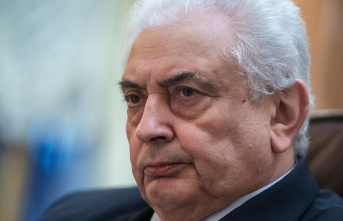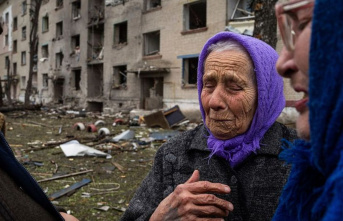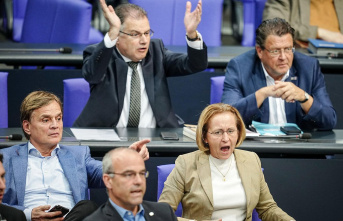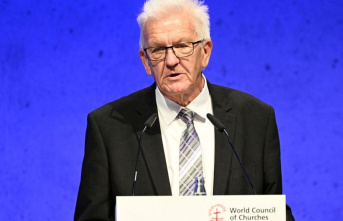After a ballot and nightly crisis meetings, the synodal assembly of the reform process of the German Catholics continued on Friday. The chairman of the German Bishops' Conference, Georg Bätzing, spoke in Frankfurt/Main of a crisis.
In a vote the previous evening, a fundamental text on church sexual morality failed due to the necessary two-thirds majority of the bishops. The bishops and the other participants then discussed in separate meetings how to proceed. In addition to the bishops, the assembly includes priests, church workers and numerous lay representatives.
Bätzing said that if a text "finds such an outstanding vote by the general assembly and not the two-thirds majority of the bishops, then something falls apart that shouldn't fall apart". There were also warning words from Irme Stetter-Karp, President of the Central Committee of German Catholics (ZdK). On the synodal path, the "willingness to change of all those involved is crucial," she said. "If this change is not possible, if we get the impression of a participation simulation, then we must and will have to carry out a new assessment of the situation." But that will happen in the committees, not "in one night".
Injuries to many delegations still deep
However, a discussion in the morning made it clear that the injuries were still deep for many delegates. Some called for a roll-call vote, particularly for bishops. "I really wonder what we're doing here and if we shouldn't stop," said one delegate.
The text on church sexual morals met with 82 percent approval in the general vote. But only 33 bishops voted in favor of the text - with 21 votes against and two abstentions.
The Synodal Path has been running since 2019, organized by the ZdK and the German Bishops' Conference. Both bodies want to achieve changes in church sexual morals, in the role of women in the church, in dealing with power and in celibacy, the obligatory celibacy of Catholic priests. The trigger for the reform process was the massive crisis of confidence after the abuse scandal became known.












